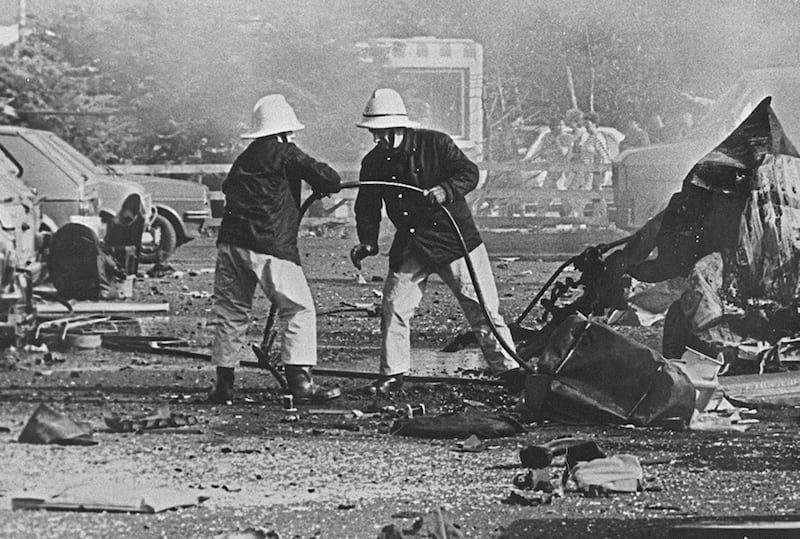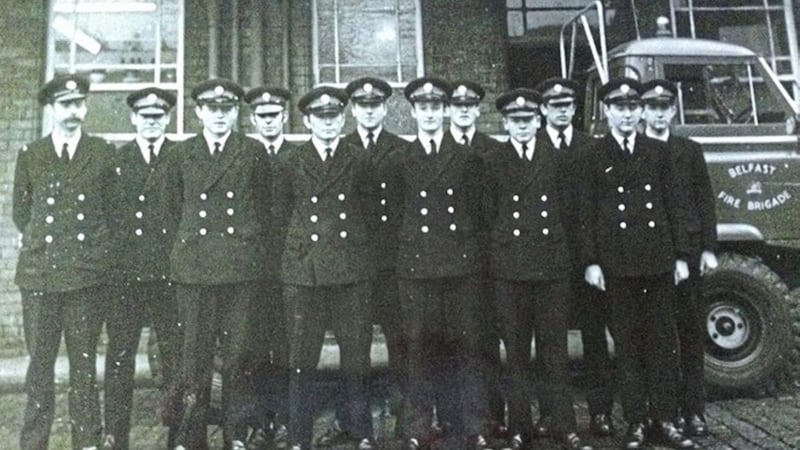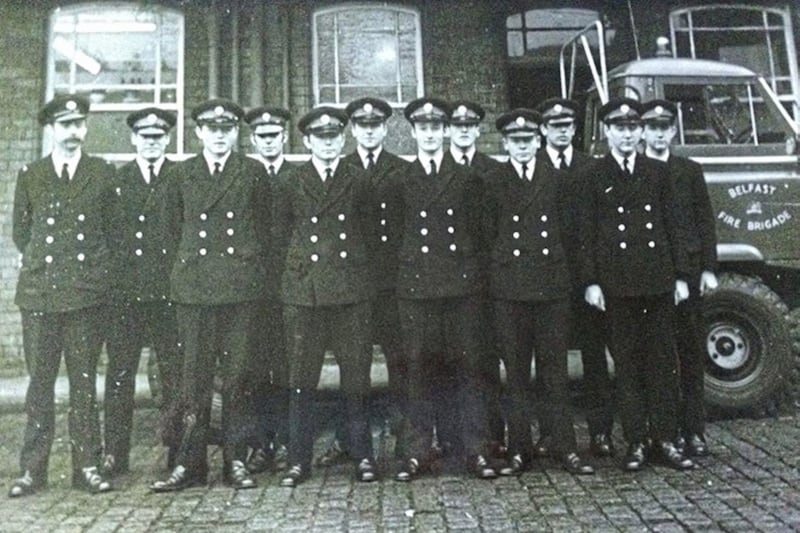OVER a quarter of a century Belfast firefighters witnessed some of the worst atrocities human beings could inflict on each other – bombs, blast incendiaries, petrol bombs, rioting – while at the same time often being stoned, shot at and threatened themselves.
For much of the period there was no recognition of stress or post-traumatic stress syndrome and no counselling. "People were just expected to get on with it," says retired senior fireman Brian Allaway. It wasn't manly to admit you couldn't cope.
The Belfast man has written the first comprehensive history of the north's fire service during the Troubles, and it took him five years.
"I just felt that while the police and army were always on TV and radio programmes, and in other books, the fire service didn't really get much of a mention," he says. "People in the service tended to keep their heads down but I knew with the people involved now getting older, much of what happened had not been recorded."
Allaway was just out of school, aged 16, when he signed up as a junior officer in 1969. He had wanted to be a painter and decorator, but could not land an apprenticeship. The newspaper advert which set the course of his life read: "Don't settle for an ordinary job, choose a career with an exciting future."
Pay at the starting point was £340 a year, but you were promised a free uniform. Then came a two-year training period but by 1971, when he was out on the engines, Belfast was ablaze.
Yet he never had any regrets.
"I knew within two weeks it was the job for me," he recalls. "It was working with your hands, which I loved – and the cameraderie. I didn't have any second thoughts at all. There were difficult times but it was very motivating that, in very negative circumstances, we were always there to do something positive."

The book is packed full of vignettes and anecdotes which ring with the reality of the place and the times – such as skinny Lizzie, the only Protestant living in Hooker Street who flew her Union flag and was burnt out eight times.
Or the incident where officers who helped a man – who had been sitting on the loo when a bomb went off – to pull his trousers back up and then, aware of other devices, a senior officer shouted: "Right, evacuate!"
"For some reason we all thought this was hilarious," Allaway says.
And then there was the day in the late 70s in Ardoyne, when rioters looting a burning hijacked refrigerated lorry began lobbing bags of chips at the officers arriving to put out the fire.
"Chips?" shouted one of the firefighters. "We want scampi." There was a voice among the looters, saying, "They want scampi," and they began rummaging through the stock until they found some.
Often dark humour helped, not least with morale, even in the fire stations – driving motorbikes into bedrooms, putting cling film on the toilets and taking the light bulbs out.
"I don't think there was any such thing as health and safety and counselling hadn't been developed. So the humour was a way of coping," Allaway says.
There are dozens of grim stories, too – finding 18 of 36 incendiary devices left in coat pockets in shops in central Belfast in one afternoon and dumping them in buckets of water, before the others went off.
And the incalculable losses – the destruction of more than 3,000 films which were being stored at the Old Lyceum Cinema and the loss of almost 1,000 books in the historic Linen Hall library from two incendiaries in 1994. Had the fire service arrived just 15 minutes later more priceless publications would have been gone forever.
Allaway's research is meticulous. He says he spent "months if not years" going through the pages of The Irish News, Belfast Telegraph and News Letter aligning reports of fires with the official fire service logbooks.
He then interviewed 28 firefighters, whose accounts and memories pockmark the books chronological account of the service which many people think most protagonists to the conflict viewed as a neutral organisation. Not so: the Provisional IRA sought to change that in 1972 with a statement warning that firefighters would be regarded as security forces if they assisted the army in recovering military vehicles damaged by land mines.
"From time to time we did get dragged into the wider conflict, sometimes through misapprehensions, but there was a culture in the service of 'Whatever you say, say nothing' and that continued," Allaway says.
Not that on a political level the service was always beyond reproach – as when a Fair Employment report in 1984 found that the workforce was 79 per cent Protestant and 18 per cent Catholic. Allaway makes clear his view that the proportion of appointments reflected the proportion of people applying from the two communities.
"The reality is that at the time most government-funded organisations were to some degree unbalanced in terms of representation and the service, as time went on, did a lot to redress that," he says.
Firefighters of Belfast does not avoid the awkward, as in May 1975 when the north's firefighters joined UK-wide industrial action, answering emergency calls only. Apart from the perennial low pay issue, did firemen feel they were taken for granted?
"I'm not sure they were taken for granted. People affected by fires were always grateful. But it wasn't really thought about. It was just the culture of the times – as they say, the past is another country," he says.
Now 65 and living in Edinburgh, where he has just retired as the last of the citys' Firemasters, Allaway remains a regular visitor to Belfast, where most of his family still live.
"I am very fond of Belfast and still have many close friends there," he says.
Above all, he says, he wanted the book to be fair and honest, and to use the standards of analysis and methodologies to achieve academic recognition.
"It was a long process," he admits.
:: Firefighters of Belfast: The Fire Service During The Troubles 1969-1994 by Brian Allaway is published by Luath Press, priced £12.99, and available now.




